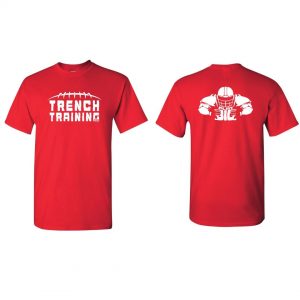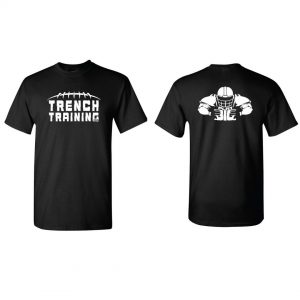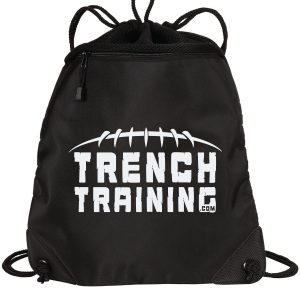
by Steve Stark | Aug 28, 2016 | coaching kids, student athletes
We can all use a few time management tips, right?
As a student athlete, time management can be very difficult.
Sports continue to become more and more demanding on your kids time.
It’s critical for your athlete to keep perspective on what’s important and not get burned out.
That is, however, easier said than done.
In today’s video I discuss 4 time management tips that can help your athlete perform better and stay on top of all their activities.
[video_player type=”embed” width=”615″ height=”346″ align=”center” margin_top=”0″ margin_bottom=”20″] [/video_player]
[/video_player]
[hyperlink style=”1″ href=”http%3A%2F%2Ftrenchtraining.com%2Ffree” font_size=”20″ font_style=”bold” font_color=”%23d11515″ align=”center”]Click Here to Become a BIG PLAYER with our FREE TrenchTraining.com Membership![/hyperlink]
5 Time Management Tips for Student Athletes
1. Use some form of calendar or organizer.
If you right something down or place something in a calendar it makes it real.
There’s something about planning and scheduling events that puts a sense of urgency on those items.
Try scheduling your time in blocks every day.
Stick to that schedule and you’ll be amazed at how efficient you can become.
If you are looking for a digital tool, Google calendar is a great and it works on any smartphone or computer.
2. Eliminate distractions.
In today’s world we are bombarded with constant distractions.
Studies have shown that it takes, on average, 25 minutes to return to the original task after an interruption.
That means that just 2 distractions can cost you nearly an hour of lost time.
You have to turn off your phone when studying.
This will maximize your study time and ensure your phone doesn’t cause you to lose time.
Social media is an absolute time killer.
Spend less time on social media by scheduling time for it.
Choose 3 or 4 times a day but limit yourself to 15 minutes for each block.
3. Spread out the work.
When you get to the middle school and high school level, most teachers will give you a schedule for assignments over the course of the semester.
If not for every assignment, certainly the bigger projects.
Take advantage of knowing these schedules.
Break the work into smaller blocks until it’s due.
How many times have you had a big assignment that you knew about for weeks but didn’t start until the week before.
Then it becomes a fire drill and you have to throw everything else aside while you finish it.
Schedule regular blocks of time to work on these projects so you don’t go nuts and lose tons of time before it’s due.
4. Learn to say no.
It’s Wednesday night and there’s great new movie in the theater.
Your best friend is asking you to go but you have time scheduled to work on a project due in 3 weeks.
This is a huge project and you have created regular blocks to work on it (Great job!)
You can probably miss this one time, right?
Unfortunately, one time turns into two.
Two times turns into three.
And then you’ll just decide to do it all the week it’s due.
You have to learn to say no.
If you don’t say know to those types of things you are going to really struggle with your schedule.
It’s tough to say know but so many times it will make the difference between success and failure.
5. Use your weekend wisely.
The weekends can’t just be your time to unwind and sleep the day away.
Make your weekends count.
Now, I’m not saying you should relax on the weekends.
You should.
But make sure you schedule the time on your weekends too.
Don’t waste all of this time vegging out in front of the TV.
I hope you found value with these time management tips.
If you did please like, comment and share.
Play Big!

Coach Steve

by Steve Stark | Aug 21, 2016 | coaching kids, teamwork
How important is it to know your role on a team?
Everyone on a team has a role. Regardless of the sport.
In football, with 11 players on the field, knowing your role and understanding the roles of others is essential.
My college football coach said it well…
“Know your role. Know where you fit in, know how your contribution contributes to the greater whole. More importantly, know and appreciate the roles of those around you.” – Barry Alvarez
Everyone wants to be a star and that’s okay.
As a coach, you want players that have the mindset to be the best.
However, not everyone will be a star and that’s okay too.
In today’s video, I discuss two things that coaches and players can do to ensure you know your role.
[video_player type=”embed” width=”640″ height=”360″ align=”center” margin_top=”0″ margin_bottom=”20″] [/video_player]
[/video_player]
2 Steps to Know Your Role
1. Defining your role.
Sometimes the most difficult part of being on a team is figuring out where you fit in.
When you get to the high school level not everyone will play in every game.
Understanding your role is crucial to the success of the team.
As a player, you need to understand what is expected of you on your team.
There are MANY roles on a football team.
Stars, vocal leader, leaders by example, special situational players, and even the goofball to lighten the mood.
All are critical to the success of a team.
Some coaches are great at explaining roles and others are not.
As a player, if you are not clear about your role on a team then you MUST speak with your coach.
A good coach will be able to explain how you are expected to contribute to the team.
Understanding your role and what is expected relieves pressure and allows you to focus on your job.
I was chosen as a team captain in both high school and in college.
It was an incredible honor both times.
It was also a bit scary.
Not being a vocal leader at all, I had to figure out what this role as a captain meant.
In both high school and college I had coaches that helped me to figure out my role.
I thought a captain had to be vocal but that wasn’t the case.
My coaches helped define my role as a captain.I realized that I didn’t have to be a vocal leader.
I realized that I didn’t have to be a vocal leader and I could focus on leading by example.
The funny thing is, when I did speak up, it was far more effective.
If I had continued to worry about that it would have affected my play and the way I interacted with my teammates.
2. Appreciating roles of others.
We’ve all heard about team chemistry.
Chemistry comes from players meshing and appreciating one another.
All the great teams that I can think of had great role players and not just superstars.
The Chicago Bulls teams of the 90s had superstars like Michael Jordan and Scotty Pippen.
They also had incredible role players like Steve Kurr (outside sharpshooter), Dennis Rodman (the rebounding machine), and Ron Harper (the perimeter defensive expert).
Without those guys, the Bulls don’t win 6 NBA championships.
Think about current teams with superstars that don’t have enough good role players around them.
Adrian Peterson in Minnesota, Kevin Durant in Oklahoma City (now flush with role players in Golden State), and Mike Trout with the Angels are all superstars in their sports.
What these players have lacked is the right combination of players around them to win championships.
Not only do you have to have the right role players you also have to make sure all of those roles feel appreciated.
This is not only the responsibility of the coaches but the players too.
No matter how good a running back, quarterback or receiver is, without the guys up front they go nowhere.
The same thing is true on defense.
If you don’t have good defensive tackles that take on double teams and use up blockers, the linebackers won’t be able to clean up behind them.
Everyone has a role on a team and they all need to know they are essential to the team.
I hope you found some value learning how to know your role.
If you did please like, comment and share.
Play Big!

Coach Steve

by Steve Stark | Aug 14, 2016 | coaching kids, youth football
If you are around sports long enough you get to meet many different types of coaches.
Some good, some bad, some crazy. Some that make us crazy.
Before we get into discussing the types of coaches that drive us crazy I want to say that I admire every coach.
Being a coach is a very special job.
It’s not always an easy job and it’s not for everyone.
But anyone who really tries and has the kids best interest at heart should be applauded.
No matter how “good” of a coach they are.
In today’s video, I discuss a few types of coaches that are difficult to deal with and some tips to make the best of each situation.
[video_player type=”embed” width=”560″ height=”315″ align=”center” margin_top=”0″ margin_bottom=”20″] [/video_player]
[/video_player]
[hyperlink style=”1″ href=”http%3A%2F%2Ftrenchtraining.com%2F” font_size=”23″ font_color=”%231414ad” align=”center”]Get Your FREE Membership to Exclusive Content at TrenchTraining.com[/hyperlink]
5 Types of Coaches that Make Us Crazy
Screaming Steve
We’ve all had a yeller for a coach. Screaming Steve has to hear his voice over everyone and everything.
In fact, you probably wonder if Steve is trying to be heard 3 towns over.
First off, not all coaches that yell are bad. Some of the best coaches I have had were loud and obnoxious at times.
The reason they were good, however, was that they were instructing not just yelling.
Screaming Steve yells things like “BLOCK!”, “TACKLE!”, or “PLAY BETTER!’
That’s not coaching. Those things don’t make anyone better.
A coach instructs a player on how to block, how to tackle and how to play better.
They don’t just yell.
How to deal with Screaming Steve:
I once got a great piece of advice about yelling coaches.
Most coaches yell because they care and they are trying to make you better.
If they stop yelling… that is when you worry.
Try to explain to your athlete that yelling doesn’t mean a coach doesn’t like you.
It’s often that they just want to make you a better player.
Negative Ned
Praise loudly, criticize softly.
That’s the best coaching advice I have ever been given.
Humans respond better to praise than criticism. Period.
Yet there are many coaches who focus on telling players what they are doing wrong.
Of all the types of coaches, Negative Ned is the most difficult for me to accept.
Now you might say, “Well isn’t that what a coach is supposed to do?’
Not really. A coaches job is to teach.
Again, what we are talking about here is the style of the coach.
Leading with criticism automatically puts a player, especially a young player, on the defensive.
Negativity will always breed this reaction.
Even if the coach teaches the proper technique incredibly well, if they led with negativity all time, the player will not absorb the teaching as well as if they had led with positivity.
“Well it can’t all be rainbows and sunshine, right?”
Maybe not. But If a coach leads with a positive comment they will get better results.
Let’s look at two different scenarios…
Negative Ned stops the drive blocking drill by yelling, “Stark! Are you kidding me? That was a terrible block! You have to get your helmet across on this play. Do your job!”
What’s wrong with the statement by Ned?
First, the sarcasm with “Are you kidding me?” is worthless. It serves no purpose other than to belittle the player.
Second, after your athlete hears “That was a terrible block.” They are going to tune out the rest.
Your athlete gets defensive and shuts down.
Here’s the second scenario from another coach named Positive Pat.
Positive Pat stops the drive block drill and says. “Stark! Great job with your feet and I really like how you used your hands there. The only thing I want you to do better on this play is to get your head across. That’s going to get your head in the hole and help you sustain your block.”
Pat reinforces what the player did right in the drill and then made a correction and told him how he could do it better next time.
Another key point here is to explain WHY the player needs to make the correction.
Can you see the difference here? It’s night and day. Great job Pat!
How to deal with Negative Ned:
Tell your athlete to focus on the instruction.
The negative comments are often that coaches way of trying to get a players attention.
As an athlete, you have to build up a thick skin because there will always be negativity.
Unfortunately, negativity is everywhere and not just in sports.
Loophole Larry
There’s always that guy that know ever by-law of every rule set out in the rec league handbook.
And Loophole Larry enforces then every chance he gets.
Even if it means holding up a game to argue with a referee and look the rules up.
(Larry keeps a copy of the league handbook in his back pocket at all times. He probably sleeps with it.)
Larry is very much concerned with the 5th-grade league championship.
He plays all the kids, but the best players play 90% of the time.
Don’t be Larry.
How to deal with Loophole Larry:
This is a great time to teach your athlete the importance of patience.
Patience is the key.
The problem with Larry is that he is often correct about the rules.
Especially the more odd and obscure ones.
Know-It-All Norman
Norman was an Honorable Mention All-Region defensive tackle back in the day.
He knows the game inside and out… just ask him.
His way is the ONLY way that is acceptable.
Norman is very defensive about his coaching and thinks all the parents are idiots.
Even the ones that had a cup of coffee in the NFL.
Mr. Know-It-All also generally fits into one the first two types of coaches with Screaming Steve and Negative Ned.
How to deal with Know-It-All Norman:
Offer to help with the team.
Even if it’s just occasionally helping with a drill.
Know-It-All Normans tend to tone it down when there are other confident adults in the vicinity.
Casual Carl
Carl’s a real laid back dude.
He’s never really played any sports but he wanted to volunteer for his kid. (Which is great by the way.)
But Carl just lets the kids kind of coach themselves.
Freedom and having fun are all Carl is about.
Now, kids should have fun when they play any sport but a coach must also maintain control of a team.
Too much freedom and flexibility can lead to unmotivated players.
That’s when the team goes sideways and that’s never good.
How to deal with Casual Carl:
This is another opportunity to step in and help.
Offer to organize team activities.
Adding a little structure to the team may be enough to keep it from becoming a free-for-all.
The Best Coach I Ever Had
In college, I definitely had a Screaming Steve for a coach.
At first, I was terrified of him.
This coach was so intense that there were times I didn’t think I was going to make it at college.
Eventually, I figured out that it was just his style of coaching.
He was mad at the players.
He just used yelling as his way to teach.
The thing that really made me realize this was his attention to detail.
He was the most technically demanding coach I have ever met.
That paid off for me as I was not always the biggest or strongest guy on the line.
However, I was a great technician of the game and my coach made me that way.
There are many types of coaching styles.
We certainly can’t list them all here.
Did you ever experience a difficult coach as a player or parent of a player?
Have you experienced any of these types of coaches?How did you handle it?
How did you handle it?
We’d love to hear your comments.
I hope you found some value with today’s post.
If you did please like, comment and share.
Play Big!

Coach Steve
Photo credits:
Marianne O’Leary – Edited

by Steve Stark | May 12, 2016 | Blog, coaching kids
It was a typical 7th-grade basketball practice at Stephen Mack Middle School in the winter of 1986.
At the end of practice, Coach Evans lined us up on the end line to run ladder sprints. (Ladders were the bane of our existence in 7th-grade basketball.)
I was a big kid and a little overweight so I really didn’t like sprints.
We were on the last leg of the sprint and Coach Evans blew the whistle for us to stop.
The team looked over to him as he was on the end line that we just touched.
Coach says, “We have to start over. Stark didn’t touch the line.”
Ughhhhh!!!
I had a tendency to go just short of the line in my sprints.
I just made the entire team start over with the one thing we all hated more than anything in the world.
What a lesson to learn!
From that day forward I was never “the guy” who made the rest of the team run because I didn’t touch the line.
What does it mean to “always touch the line”?
Why is that important?
What does it mean to “Always Touch the Line”?
1. You hold yourself accountable.
You can’t be a leader and you can’t hold others accountable if you aren’t first accountable to yourself.
Being part of a team is all about accountability but it starts with you.
You will only be as good as you decide to be.
Never cheat yourself.
Never cheat your team.
Decide to be great!
2. Others can depend on you.
No one person is ever greater than the team.
In football, like any other team sport, you need to depend on the person next to you.
You may think your teammates don’t see you stopping short of the line but they do.
You won’t ever reach your potential.
You won’t ever be as successful as you want to be.
You will never be a leader.
If you aren’t willing to give maximum effort in practice then your teammates and coaches won’t trust you when it counts.
3. You understand what it takes to succeed.
All of these things speak to what you are made of.
This is what decides whether or not you have integrity.
What is your integrity worth?
Everything!
This isn’t something kids are thinking about.
It’s a lesson we need to teach early on.
The earlier that our athletes learn about what it means to Always Touch the Line, the better their chance of success.
Not only in sports but in life.
Why is this lesson still important to me today?
Because it reminds me to always give everything I have to that which I am passionate about.
It reminds me that I can do anything with enough hard work.
It reminds me what it takes to be successful in everything that I do.
What will it remind you?
I hope you will always strive to “Always Touch the Line” in everything you do.
If you found value with this post please like, comment and share.
Also, if you have questions about training your athlete or your coaches please contact us at steve@trenchtraining.com or glenn@trenchtraining.com.
Let’s Play,

Coach Steve

by Steve Stark | Apr 20, 2016 | Blog, coaching kids
Last week I had a chance to go to the Wisconsin Football Coaches Clinic and talk to coaches about offensive line play.
It’s always great to network and talk football with other coaches.
Coach Glenn and I had a chance to speak to quite a few college coaches and we heard many voicing the same concern.
Many college coaches feel there is a lack of fundamentally skilled offensive linemen coming out of high school.
We are hearing more and more about NFL coaches saying the same thing about college offensive linemen.
So why are we seeing a decline in offensive line play and what can we do to improve offensive line play?
Why The Decrease In Quality Offensive Line Play?
Emphasis on Scheme
High school and college football has changed dramatically over the past decade.
The emphasis for coaches has shifted heavily to teaching a scheme or a system.
While the scheme an offense uses and how well they teach it is important, fundamentals cannot be sacrificed for scheme.
Pressure to win, and win now, has a big impact on a programs.
Let’s be honest…
Parents, administrators and communities expect to win.
If a coach doesn’t win they are out.
That is true at EVERY level. Even youth football.
One of the things coaches are doing in an attempt to win is focusing on a scheme.
A well coached scheme can help you win football games.
The fact is, scheme is easier to teach than fundamentals.
How many times have you heard, ‘We just don’t have the kids to do that scheme”?
I have heard it many, many times.
The fact is, you can make any scheme work if you coach it well enough.
Wing T, spread, zone, wishbone, flex bone, pistol, double wing, single wing, chicken wing…
It doesn’t matter.
Coached well enough any scheme can work. (The chicken wing might be tough.)
The problem is that a lot of schemes today don’t put emphasis on great blocking up front.
Take the spread zone-read offense for example.
It’s predicated on spreading the defense out, forcing the defense to make decisions and getting rid of the ball quickly.
This is a great offensive scheme!
However, coaches have to spend more time on QBs, running backs and receivers because the scheme is so complex.
What we see is that the programs that spend time to have great technique in the line as well as a strong scheme, win championships.
Schemes are important and some are quite ingenious and effective.
The point is that coaches don’t spend as much time on fundamental line play, thinking that scheme is what will make their program successful.
I know this is a generalization and there are a bunch of coaches that are teaching great fundamental line play.
So don’t get bent out of shape if that ‘s you.
Others out there, and there are quite a few, are not spending the time on their offensive lines.
That leads me to the next reason for the decline in offensive line play…
Lack of Quality O-Line Coaches
In many programs there just isn’t anyone with good offensive line coaching experience.
It’s very rare at the youth level but many times at the high school level too, to find good o-line guys.
The problem is growing as we are seeing scheme trump fundamentals.
Coaches who come out of programs that didn’t teach fundamentals well are not going to be able to teach it either.
The pickings become more and more slim every year.
This may seem unfair but I believe, very strongly, that it’s true.
Anyone who coaches is an exceptional person in my mind.
I never want to take away from the time and effort that all coaches put in.
It doesn’t change the fact that we are woefully short on o-line coaches with quality experience and training.
The crazy thing is that an offensive line constitutes 45% of the players on that side of the ball.
Add a tight end who has to block and it goes up to 55%.
You’d think we would spend more time and effort on it, huh?
What Can We Do To Improve Offensive Line Play?
Put More Emphasis on Fundamentals
Again, I know that scheme is important.
Consider how good your team could be if you taught great fundament line play with your awesome scheme.
Fundamentals need to start in the youth programs.
The reason many coaches say, “we don’t have the kids to run that offense” is because those big kids quit before they get to high school.
The coaches put the emphasis of the programs on the “skill” positions and the scheme.
We need to change the way we treat the big kids in our youth programs.
Educate Line Coaches
There is a lot more to fundamental line play than telling a kid, “Block!”
Footwork, body control, pad level, hand placement and punch are just a few of the critical aspects to teach a lineman.
There are coaches that say, “All of those things are overkill for youth players. They can’t handle it.”
Yet those same coaches teach the subtle nuances of playing quarterback, running back, receiver, linebacker and defensive back.
I’m not sure it can be emphasized enough… HALF of your offense are linemen.
Make sure that those who coach your linemen are getting training and education on the fundamentals.
Too many times the line is coached by the parent who had to coerced to help out with his son’s team.
He knows nothing about line play and doesn’t even know where to get information.
There is high school near me who had their varsity offensive line coach give up his position just prior to the season.
They didn’t even replace him.
The kids basically had to coach themselves.
Is that crazy?
Half of your offensive doesn’t have a coach?
I’m a firm believer that a good coach can coach anything if they are given the right information and training.
There is no excuse to have a youth or high school program that doesn’t put a focus on line play.
The “skill” of the guys up front will always win out over scheme.
Linemen need to be thought of as “skilled” players because it takes skill to be a good lineman.
Positive Coaching
We need to keep more kids in our youth football programs.
Especially the big kids.
The only way to do this is to make their experience as positive as we can.
Coaches need to build players up.
They need to reinforce what their players are doing well and they need to teach the areas where they are struggling.
Yelling at a player about what they are doing wrong is not making the player better.
Here’s a good rule for any coach…
“Be loud when you praise. Be quiet when you correct and teach.”
Your tone when you coach means everything to players.
Without good line coaching, we have big kids who aren’t getting a lot of attention in practice.
Then these kids make mistakes and get yelled at in games.
Do you think these kids want to keep playing?
I wouldn’t.
Neither would you.
Positive coaching is important for all kids in all youth sports.
This change can have the biggest impact on the success of a program.
We need positive coaches who are positive role models making a positive impact on kids.
I hope your found some value learning how to improve offensive line play.
If you did please like, comment and share.
Also, if you have questions about training your athlete or your coaches please contact us at steve@trenchtraining.com or glenn@trenchtraining.com.
Let’s Play,

Coach Steve

by Steve Stark | Mar 23, 2016 | coaching kids
Why is being coachable such an important trait to have? Is this something learned or do we just have it?
One thing we know for sure…
Being coachable is necessary for success.
Our caretakers (moms, dads, uncles, aunts, grandmas and grandpas, teachers, coaches etc.) are the ones that usually dictate how coachable we are.
If we had caretakers that themselves were coachable, the chances are we will follow their example.
What do uncoachable athletes look like?
Athletes that struggle with being coachable tend to be the ones that are looking at the mistakes of the team.
They complain a lot about things out of their control such as referees, leaders on teams, coaches and organizations, other teams and how they look or perform.
Athletes who do not understand being coachable will be the ones that don’t comply with the team’s direction because they feel they have a better way.
All of their focus in on themselves.
When they face adversity they look to blame rather than take responsibility.
What do coachable athletes look like?
Athlete who understand being coachable tend to look at their own roles and see where they could improve.
They work hard at finding a way to perform better for their team.
Even though they may disagree with others, they look at what they can do to help the team become better.
They put the team first and understand that the team’s success will help create individual success.
They are athletes that spend more time working than complaining.
They understand that adversity is part of the game and they actually look forward to finding ways to overcome adversity.
Players who are coachable also have a greater potential to be a leader.
The ability to learn from other leaders is how we become leaders ourselves.
Even if we do not desire a leadership position we can be the leaders on the team that show up, work hard and lead by example.
This type of leaders are very common on championship teams and they have the respect of all those around them.
Many great teams have the ability to go through really tough times early in the season and then towards the end they go on runs to win championships.
Being coachable during the tough adverse times is so important to success of the season as a whole.
Compassion and Coachability
For the above reasons I am convinced that nothing will set a coachable person or a leader apart more than being compelled by compassion.
When we are compassionate towards others we will open our minds to understanding big pictures (the entire season).
When we are into our self wants, we tend to only see what is right in front of us (small picture).
In our seasons we will face many adversities and if we are looking at the small picture it is much more difficult to overcome adversity.
Compassion is seeing what others see, hearing what others hear, and feeling what others feel.
When we are willing to enter into another person’s life and into their pain, we are able to be moved with compassion.
Compassion does not eliminate the importance of other great traits of leadership.
We should strive to influence all elements of our leadership with compassion:
Confidence with compassion
Competence with compassion
Authority with compassion
Intensity with compassion
Follow-through with compassion
Due diligence with compassion
Leading with compassion
Today, ask yourself to see, hear, and speak with compassion.
Learn to grow and develop so that you will have compassion toward those we encounter. Learn to hold compassion as an influence in all aspects of leadership.

4 Characteristics of a Leader Who is Growing in Their Teachability
Ongoing Humility: Many times, our own mistakes move us to great humility. The world calls it weakness, but it is authentic strength.
Learning to Learn: Growing in teachability involves us learning to learn from our authentic self as well as others. The result is that we will become wiser the longer we live.
Gaining Wisdom: We discover wisdom from paying attention to who we are, meditate upon it, and practice our learning skills. When we do this, our future is limitless and our hope abounds.
Growing Daily: Remember to use your time wisely to focus on who and what kind of person you are meant to be. Other people’s mistakes as well as successes can help shape the vision that comes from your heart.
If your desire is to become a great athlete we challenge you need to spend time learning to become coachable.
If you had caretakers that were not coachable people that does not mean you can not become coachable.
It takes practice, energy towards learning, and practice.
Did I mention practice?
Yes, I think I did and this is so important in changing your viewpoints as well as your behavior.
Great athletes learn and grow and use practice to better themselves.
The beauty of us having free will is that we have the opportunity on a daily basis to change our behavior and to learn from mistakes.
Being coachable will help you not only in sports but will help you in your career and relationships.
Take time to learn and if you need to ask Steve or I any questions please do not hesitate to ask or comment.
Work Hard, Play Big!

Coach Glenn

![]() [/video_player]
[/video_player]![]()















